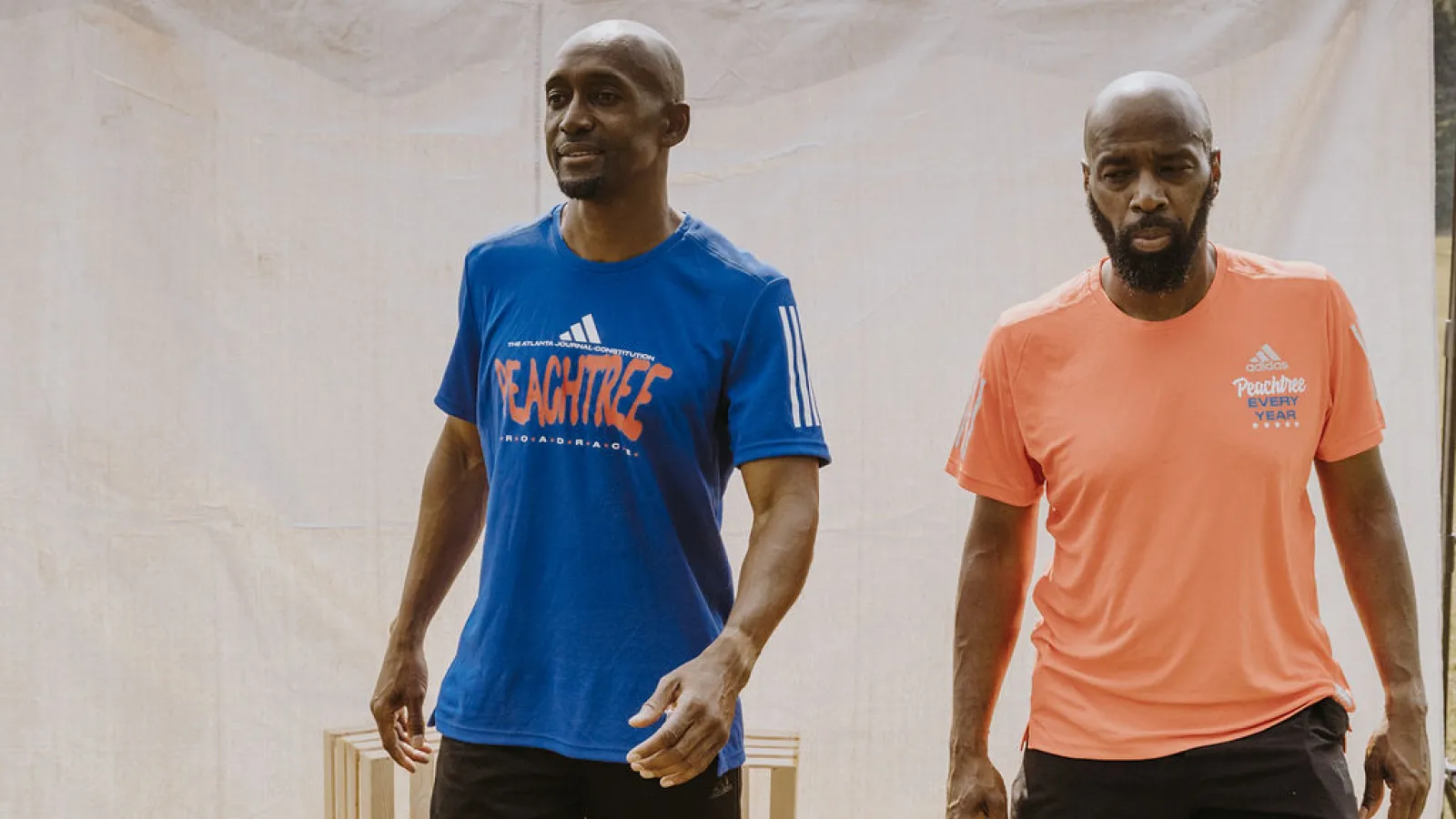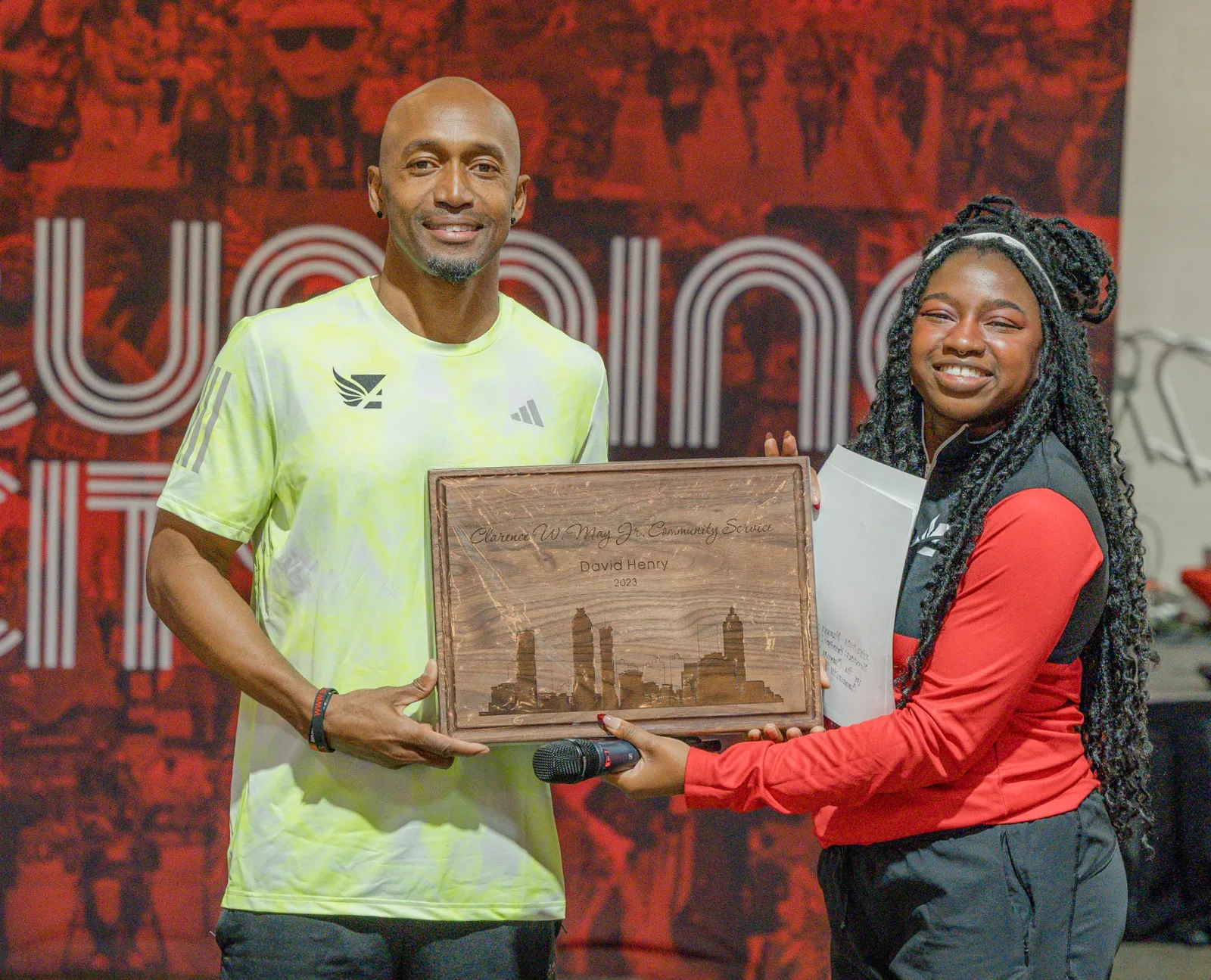
Greetings from Running City USA: David Henry
In 2014, soon after retiring from a 24-year-career in the Air Force, David Henry joined Atlanta Track Club. He began volunteering a few years later, first at the Club's All Comers Track & Field meets but before long … well, pretty much everywhere. If it's Microsoft Peachtree Junior, you might find him in the Track & Field Zone; if it's an Expo, he's at number pickup. A crew chief, an ambassador, you name it; the ever-present, ever-smiling, kindhearted Henry has even filled in at the front desk at the Club's office on Armour Drive. In 2023 alone, the 53-year-old Macon native volunteered at 10 events and put in a total of 156 hours. Last month, he was honored with the 2023 Clarence W. May Jr. Community Service Award, named in honor of a long-time Club volunteer who passed away in 2000. Henry is also a star on the Club's Masters Track & Field Team: In 2022, he was ranked #1 in the U.S. at 400 meters in the 50-54 age group and won the 200-400 double at the National Senior Games. Last year, Henry was part of three USATF indoor champion relay teams, at 4x200, 4x400 and 4x800 meters and three USATF outdoor champion relay teams at 4x100, 4x400 and 4x800. And did we mention he was the overall runner-up in the 2023 Grand Prix Series presented by Summit Coffee?

What did you think when you heard your name called as the Clarence May winner?
I was shocked. I was definitely grateful - I truly appreciate it.
How did you first get involved with the Club?
After I retired from the Air Force in 2013, I joined a fitness group and then Black Men Run, and from there the Club because of Peachtree.
Did you move around when you were in the military?
I did. I was stationed in South Korea twice, and most of the U.S. The last 13 years were in Florida, at Eglin Air Force Base in Ft. Walton Beach. I had deployment assignments to Oman, Grand Turk Island and Guantanamo Bay, and traveled to Japan, Greece, Italy and Spain.
So, you did your first Peachtree in 2014?
Yes. That first year, I thought the photo banner [about four blocks from the end] that says SMILE was the finish line, so I started sprinting right after the corner onto 10th Street. I ended up having to walk and jog to the finish line.
How did you get started running?
I was a sprinter in junior high at Ballard "B" Middle School and Southwest High School in Macon - I even ran at All Comers in the summer. I had planned to run in college but ended up joining the Air Force right out of high school to run for their team, but then Desert Storm/Desert Shield kicked off and I never got a chance to do that. But that's where I found out I could run long distances. I started to max out in the P.T. [physical training] program. They created an elite program and I still did well. I wondered, "where did THAT come from?" Eventually, I even did two marathons, in Las Vegas and Savannah.
And what made you return to sprinting?
I was volunteering at All Comers and saw people my age running sprints. That's where I found out about the USATF and Atlanta Track Club Masters [Team]. However, in one of the first meets where I did the sprints after running the longer distances, I came out of the blocks like I was running a 5K so I knew I had to cut back on long-distance running. I may switch back because I want to do another marathon when I turn 55.
Do you volunteer for other organizations as well?
I help with a lot of Tes Marshall's events at runningnerds, like The Race Half Marathon and 5K, and I love working with kids at drawchange. On Sundays, I help at SafeHouse Outreach for the homeless.
And you're a USATF Level 1-certified coach, as well?
Yes, I coach boys and girls varsity track and field athletes, middle school and high school, and girls varsity volleyball at the Howard School, and I train a group of masters runners who meet at Cheney Stadium.
Did you volunteer growing up?
We were always doing things at church. Even in the military, I was in the Big Brothers Big Sisters program. I was the oldest of 11, so I always tried to set a good example. Plus, it made me good at sharing!
Why do you find volunteering so important?
You get to do nice things for people, and you get to learn. In 2021, I was having problems with depression and anxiety, probably from being alone so much during the pandemic. I knew something was wrong, but I didn't know what it was. I went to the VA [Veterans Administration] and they provided me with help along with lots of volunteering. Since I opened up about it, I found a lot of other people who had those issues. Sharing my stories helps me and allows me to help others.
This interview was edited and condensed for clarity.

